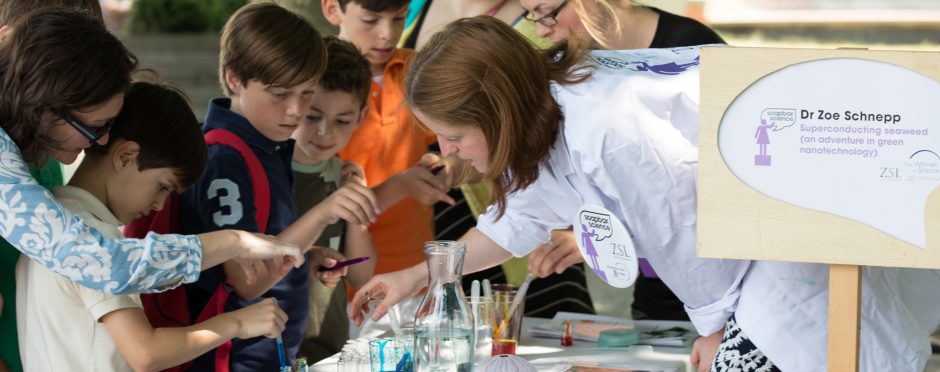In 2012, the Zoological Society of London (ZSL) and L’Oréal-UNESCO For Women in Science programme joined forces again for the second year running with some of the UK’s most prominent female scientists to bring science to the people. With speakers including Professor Dame Athene Donald, the equality champion at University of Cambridge, Professor Lesley Yellowlees, the first female president of the Royal Society of Chemistry and Professor Sunetra Gupta, acclaimed novelist and winner of the Royal Society Rosalind Franklin Award for her scientific achievements, the audience discovered what makes goo gooey, found out what dressed to kill really means and learned how plants protect themselves against the bitter winter.
In 2012, Soapbox Science focused on inspiring a new generation of scientists and students from across London and the UK joined in. The event striped away the Powerpoint presentations and jargon, transforming a small corner of the Southbank into an arena of dynamic debate centered on the latest cutting-edge science. Whether they had three hours or three minutes, spectators could drop by and listen to some of the UK’s top female scientists from the fields of biology, physics, chemistry and engineering as they took to their soapboxes to talk passionately about their subjects and answer the public’s burning science questions.
Julie McManus, Director of Science at L’Oréal UK & Ireland, said: “So many of us benefit from the amazing discoveries which these scientists have contributed to and Soapbox Science offers a unique chance for the public to get up close and personal with the research which affects our everyday life. By offering the public this platform for debate and interaction with the UK’s top female scientists we aim to provide the role models that will spur on the young scientists of the future.” Professor Lesley Yellowlees, who was speaking at the event commented: “Events like Soapbox Science are vital to showcasing the female scientist talent in this country. On Monday 16th July, I will be joined by some of the most eminent scientists in the UK at the height of discovery and innovation. Hopefully, we will go some way to communicating the message to a new generation of scientists, and bridge the gender gap that is so eminent in science even today.”
